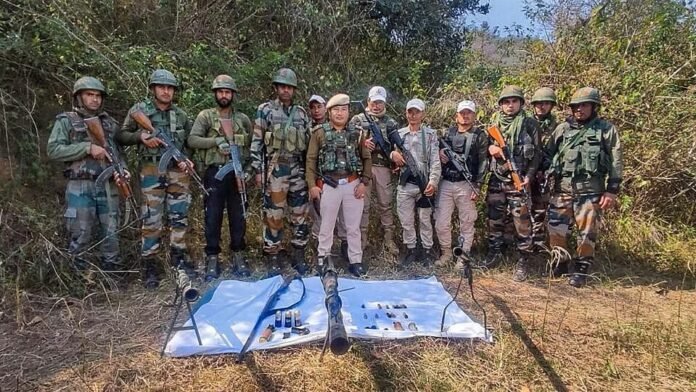In a significant move aimed at enhancing public safety and curbing the proliferation of firearms, authorities in Manipur have directed licensed gun holders to deposit their weapons at police stations. The directive, which comes amidst growing concerns over gun-related violence and crime in the state, underscores the government’s commitment to maintaining law and order and ensuring the safety of citizens.
Manipur, like many other states in India’s northeast region, has grappled with various security challenges, including insurgency, ethnic conflicts, and criminal activities. The easy availability of firearms has exacerbated these challenges, fueling violence and posing a threat to public security. In recent years, there has been a concerted effort by the government to address this issue and clamp down on illegal arms trafficking while regulating the possession of licensed firearms.
The decision to require licensed gun holders to deposit their weapons at police stations is a proactive step towards achieving these objectives. By temporarily relinquishing their firearms, licensed gun owners are contributing to the broader goal of reducing the risk of misuse or unauthorized use of weapons. This measure is part of a larger strategy to strengthen gun control measures and promote responsible firearm ownership in the state.
While the directive may inconvenience some licensed gun holders, it is essential to recognize the broader benefits it offers in terms of public safety and security. Firearms, particularly when in the wrong hands or under volatile circumstances, can escalate conflicts and lead to tragic consequences. By centralizing the storage of licensed firearms at police stations, authorities can better monitor and regulate their use, thereby minimizing the potential for misuse or accidents.
Moreover, the decision reflects a recognition of the evolving security landscape in Manipur and the need for proactive measures to address emerging threats. In recent years, the state has witnessed significant improvements in security and stability, thanks to concerted efforts by law enforcement agencies and various stakeholders. However, challenges persist, and initiatives such as the directive on licensed firearms play a crucial role in consolidating these gains and ensuring sustained progress.
It is worth noting that the directive applies only to licensed gun holders, who are legally authorized to possess firearms for specific purposes, such as self-defense or sporting activities. This distinction is essential to avoid penalizing law-abiding citizens while targeting illegal arms trafficking and criminal activities. Licensed gun owners have a responsibility to comply with regulations governing the possession and use of firearms, and the directive to deposit their weapons at police stations is a manifestation of this shared commitment to public safety.
Additionally, the directive provides an opportunity for authorities to conduct thorough verification and documentation of licensed firearms, ensuring that all weapons are accounted for and properly registered. This process helps maintain a transparent and accurate record of firearms in circulation, which is essential for effective law enforcement and crime prevention efforts. It also serves as a deterrent to individuals who may consider acquiring firearms through illegal or unauthorized means.
While the directive is a step in the right direction, its effectiveness ultimately depends on robust enforcement and cooperation from licensed gun holders. Authorities must ensure that the process of depositing firearms at police stations is seamless and convenient for gun owners, while also providing clear guidelines and timelines for the return of weapons once the specified period has elapsed.
In addition, the directive requiring licensed gun holders in Manipur to deposit their arms at police stations is a commendable initiative aimed at enhancing public safety and security. By temporarily relinquishing their firearms, licensed gun owners are contributing to the broader goal of promoting responsible firearm ownership and curbing the proliferation of weapons. Moving forward, it is essential for authorities to maintain vigilance and continue implementing measures to address the underlying factors contributing to gun-related violence and crime in the state.


